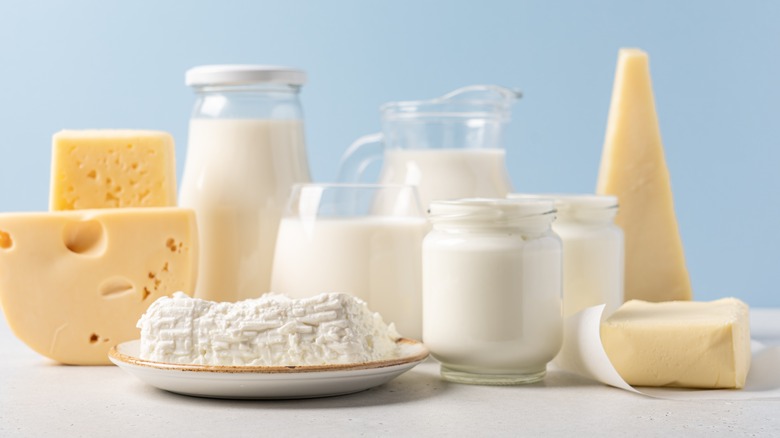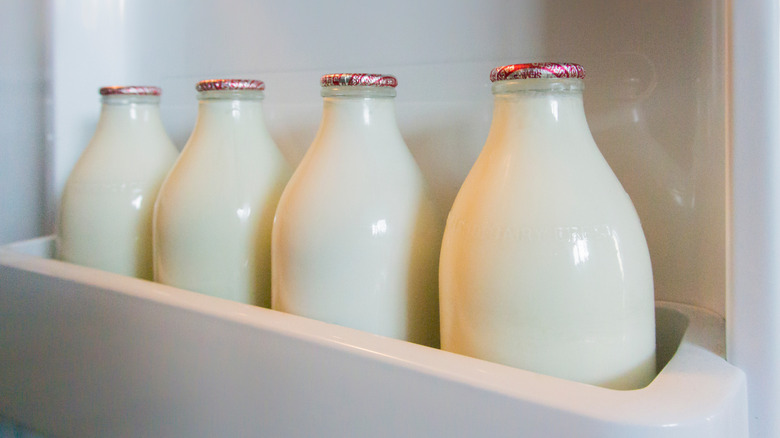Why You Should Never Try Canning Dairy Products
There are many foods that you can preserve by canning. You can save vegetables like tomatoes, beans, and corn, fruit like apples, strawberries, cherries, and apricots, and even meats like chicken, beef, lamb, and pork. However, there are certain food groups that you absolutely cannot can — one of those is dairy.
It is a health concern above all else. According to Penn State, certain foods interfere with the heat transference and actually create environments where bacteria can thrive. One such bacteria is known as clostridium botulinum, which is known to cause botulism if your foods are not canned properly. As the CDC notes, ingesting botulism toxins through food can lead to serious illness and, in some cases, death.
The reason that dairy is so susceptible to harmful bacterial growth with any form of canned preservation is because dairy has very low acidic levels. Foods that are higher in acidity are far less likely to develop the harmful toxins. So, if you find yourself with a glut of dairy, how exactly are you supposed to preserve it all if you can't can it?
What can you do with dairy, then?
Since canning always involves some degree of heat in order to provide a proper seal and, in some cases, cook the food inside, it is unsuitable for dairy. In order for dairy to be preserved the temperature actually needs to be lowered, which is why milk is refrigerated. However, there are several products you can make from milk in order to make it stretch and last longer.
Those who have access to large quantities of dairy often make butter and cheese. Though cheese-making does involve heating the milk, the bacteria present actually eats the sugars in the milk and produces lactic acid, creating an environment where harmful organisms can't grow. As far as butter goes, if it is unsalted, keep it in the fridge. Salted butter, however, can be kept at room temperature so long as it is covered.
The best way to preserve dairy is to freeze it. And a good rule of thumb is to remember that dairy products, or recipes that include dairy as a main ingredient, are best prepared fresh or frozen. Freezing will not destroy the botulism toxin, but if the dairy is never heated to the point where botulism is allowed to grow, the freezing will extend its life and keep it in relative freshness for months on end. Other ways of preserving a dairy harvest include making yogurt and ice cream.

